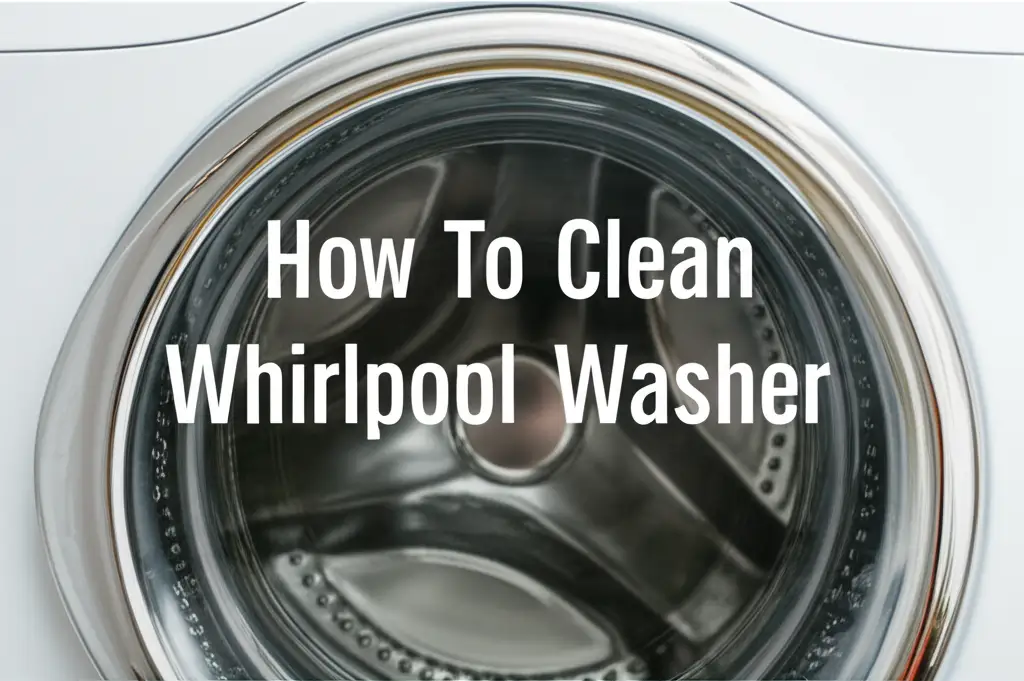· Home Cleaning · 10 min read
How To Clean Washer Smell

Eliminate Washer Odors: How to Clean Washer Smell Effectively
Ever opened your washing machine door only to be hit by a stale, musty odor? You are not alone. A smelly washer is a common household problem. It can even make your freshly washed clothes smell less than clean. Nobody wants clothes that come out smelling worse than they went in.
This unpleasant smell usually comes from mold, mildew, and bacteria buildup. Lint, detergent residue, and hard water minerals also contribute to this problem. Knowing how to clean washer smell properly saves your laundry and your nose. This article will guide you through simple steps. We will cover natural solutions, commercial products, and preventative measures. Get ready to make your laundry room smell fresh again.
Takeaway:
- Regularly clean your washing machine.
- Use hot water cycles with cleaning agents like vinegar or bleach.
- Focus on all parts: drum, detergent dispenser, and seals.
- Prevent future smells by leaving the door open and wiping surfaces.
How to clean washer smell?
To clean washer smell, run a hot cycle with white vinegar or a commercial cleaner to sanitize the drum. Wipe down all accessible parts, including the detergent dispenser and the rubber gasket on front-loaders. This removes mold, mildew, and detergent residue, leaving your washer fresh.
Why Your Washer Smells Bad
Your washing machine is designed to clean, but it can get dirty itself. Understanding why your washer smells bad is the first step to fixing it. The main culprits are mold and mildew. These thrive in warm, damp environments. A washing machine provides the perfect breeding ground.
Detergent and fabric softener residue also build up over time. This residue traps dirt and moisture. It then becomes a food source for bacteria and mold. Using too much detergent makes this problem worse. Low-temperature wash cycles do not kill these microorganisms effectively. This leaves them to grow and produce odors. Hard water deposits can also create a rough surface. This rough surface makes it easier for grime to stick. Knowing these causes helps you tackle the smell directly.
Preparing Your Washer for a Deep Clean
Before you start cleaning, prepare your washing machine. This ensures a more effective cleaning process. First, make sure the washer is completely empty. Check pockets of any clothes left inside. Remove any items from the drum.
Next, unplug the machine from the power outlet. This step is crucial for safety. You will be reaching into different parts of the washer. Unplugging prevents accidental starts. Finally, gather your cleaning supplies. You will need white vinegar, baking soda, or a commercial washer cleaner. A microfiber cloth, an old toothbrush, and a spray bottle are also helpful. Having everything ready saves time and makes the cleaning process smooth.
Cleaning a Front-Load Washer for Odors
Front-load washers are prone to odors due to their design. The rubber gasket around the door is a common spot for mold and mildew. Water often gets trapped there. This creates a dark, moist environment. Cleaning this area is very important.
Start by wiping down the rubber gasket with a damp cloth. Use a solution of white vinegar and water. Pull back the folds of the gasket to clean hidden grime. You might find black mold or mildew here. For stubborn buildup, use an old toothbrush. Dip it in vinegar to scrub away the grime. You can find more specific guidance on this part by checking how to clean front-load washer gasket.
Next, clean the detergent dispenser. Pull out the drawer if possible. Wash it thoroughly with warm, soapy water. Rinse away all detergent residue. If the drawer is not removable, wipe inside with a cloth and toothbrush. Build-up in the dispenser can cause bad smells. Finally, run a cleaning cycle. Add two cups of white vinegar directly into the detergent dispenser or drum. Select the hottest water setting. Choose the “clean washer” cycle if your machine has one. If not, use a regular cycle with an extra rinse option. This deep cleans the drum and hoses. For a general guide, learn more about how to clean front-load washer effectively.
Cleaning a Top-Load Washer for Odors
Top-load washers also develop odors, though often in different areas than front-loaders. The agitator or impeller and the inside of the tub are common problem spots. Mold, mildew, and residue can cling to these surfaces. Regularly cleaning these parts keeps your washer fresh.
Begin by filling the washer with hot water on the highest setting. Once full, add two cups of white vinegar to the water. Let the water and vinegar sit in the tub for about an hour. This allows the vinegar to break down grime and kill bacteria. For detailed instructions on using vinegar, see how to clean washer with vinegar.
During the soak, wipe down the top rim of the washer and around the lid. Use a cloth dipped in the vinegar solution. Pay attention to any detergent or fabric softener build-up. After soaking, let the washer complete its cycle. If your top-load has an agitator, this part can also accumulate grime. You can sometimes remove the agitator for a deeper clean. For tips on this, refer to how to clean washer agitator. Once the cycle finishes, run a second cycle with a cup of baking soda. This helps neutralize any remaining odors. For specific top-load models, like LG, you might find unique cleaning instructions on how to clean LG top-load washer.
Natural Remedies for Washer Smell
Many natural ingredients work wonders for eliminating washer odors. These methods are safe, effective, and often cheaper than commercial cleaners. White vinegar and baking soda are your best friends in this fight. These items are readily available in most homes.
White vinegar is a powerful natural disinfectant and deodorizer. Its acetic acid helps break down soap scum, mildew, and mineral deposits. To use it, pour two cups of distilled white vinegar directly into the detergent dispenser or the drum. Run a hot water cycle on the largest load setting. Let the cycle complete. The vinegar will flush out odors and grime. It also sanitizes the machine. This is a common and highly effective method for keeping your washing machine fresh.
Baking soda is another excellent natural deodorizer. It absorbs and neutralizes odors rather than masking them. After the vinegar cycle finishes, you can run a second empty hot water cycle. Add half a cup of baking soda directly to the washer drum. This step helps to further rinse away any remaining residue and odors. Combining both vinegar and baking soda creates a powerful cleaning duo. For more information on cleaning your washer without specialized products, check how to clean washer without Affresh.
Commercial Washer Cleaners
While natural remedies are effective, sometimes a commercial washer cleaner provides extra power. These products are formulated to tackle tough odors, mildew, and residue. They come in various forms, like tablets, powders, or liquids. Using them is often very simple.
Most commercial cleaners require you to add the product to an empty washer drum. Then, you run a hot water cycle. Always follow the specific instructions on the product packaging. Some popular brands include Affresh, OxiClean, and Washing Machine Cleaner by Glisten. These cleaners contain ingredients designed to break down biofilms. Biofilms are layers of bacteria and mold that stick to surfaces. They can be hard to remove with just water. Commercial cleaners reach areas natural solutions might miss. They offer a strong, one-time deep clean. Consider using them once every few months for maintenance.
Preventing Future Washer Smells
Preventing future washer smells is easier than cleaning existing ones. A few simple habits can keep your machine fresh. Consistent maintenance saves you time and effort. It also ensures your clothes always come out smelling clean.
First, always leave the washer door or lid open after each use. This allows the drum to air dry completely. Moisture is the biggest cause of mold and mildew growth. Even a small gap helps. Second, remove wet laundry immediately after the cycle finishes. Do not let damp clothes sit in the machine. They will quickly start to smell. This smell can transfer to the washer itself.
Third, use the right amount of detergent. Too much detergent creates excess suds and residue. This residue builds up and feeds odor-causing bacteria. Check your detergent’s instructions for proper dosing. Fourth, periodically wipe down the detergent dispenser and gasket. Use a damp cloth to remove any visible residue. Consider running an empty hot water cleaning cycle once a month. This flushes out hidden grime. By following these simple steps, you can keep your washer smelling clean. This will ensure your laundry always comes out fresh. For general tips on keeping your machine odor-free, you might find valuable information in how to clean smelly washer.
FAQ Section
Why does my washer smell like rotten eggs?
A rotten egg smell in your washer often indicates a buildup of hydrogen sulfide gas. This gas is produced by certain types of bacteria. These bacteria thrive in standing water, detergent residue, and biofilm inside your machine. Running a hot cycle with bleach or a specialized washer cleaner helps eliminate these bacteria.
Can I use bleach to clean my washer?
Yes, you can use bleach to clean your washer, especially for sanitation. Add half a cup of liquid chlorine bleach to the detergent dispenser. Run a hot water cycle with an empty machine. This kills mold, mildew, and bacteria. Do not mix bleach with vinegar; it creates dangerous fumes.
How often should I clean my washing machine?
You should clean your washing machine every month or two. This prevents the buildup of mold, mildew, and detergent residue. If you wash frequently, or if you use mostly cold water, clean it more often. Regular cleaning maintains its performance and prevents bad odors.
What is the black gunk in my front-load washer gasket?
The black gunk in your front-load washer gasket is typically mold and mildew. This grows in the damp environment of the rubber seal. It also comes from trapped lint, dirt, and soap scum. It needs regular wiping and deep cleaning to prevent it from getting worse and causing odors.
Does leaving the washer door open help?
Yes, leaving the washer door or lid open after each use helps greatly. This allows air to circulate inside the drum. It helps the interior dry completely. This simple step prevents moisture from getting trapped. It stops mold and mildew from growing. This is a key habit for preventing odors.
Conclusion
A clean washer means clean laundry. You now have the tools and knowledge to tackle those unpleasant smells. We covered why your washer smells and how to deep clean it. You learned about specific steps for both front-load and top-load models. Natural solutions like vinegar and baking soda offer effective, eco-friendly options. Commercial cleaners provide a powerful alternative for tough odors.
Remember, prevention is key. Simple habits like leaving the door open and using the correct detergent amount make a big difference. By regularly cleaning your machine, you ensure it stays fresh and performs its best. Say goodbye to musty laundry and hello to fresh, clean clothes. Your nose and your clothes will thank you. Keep your washing machine smelling great with these easy steps.
- washer smell
- cleaning washing machine
- front load washer cleaning
- top load washer cleaning
- mildew smell




